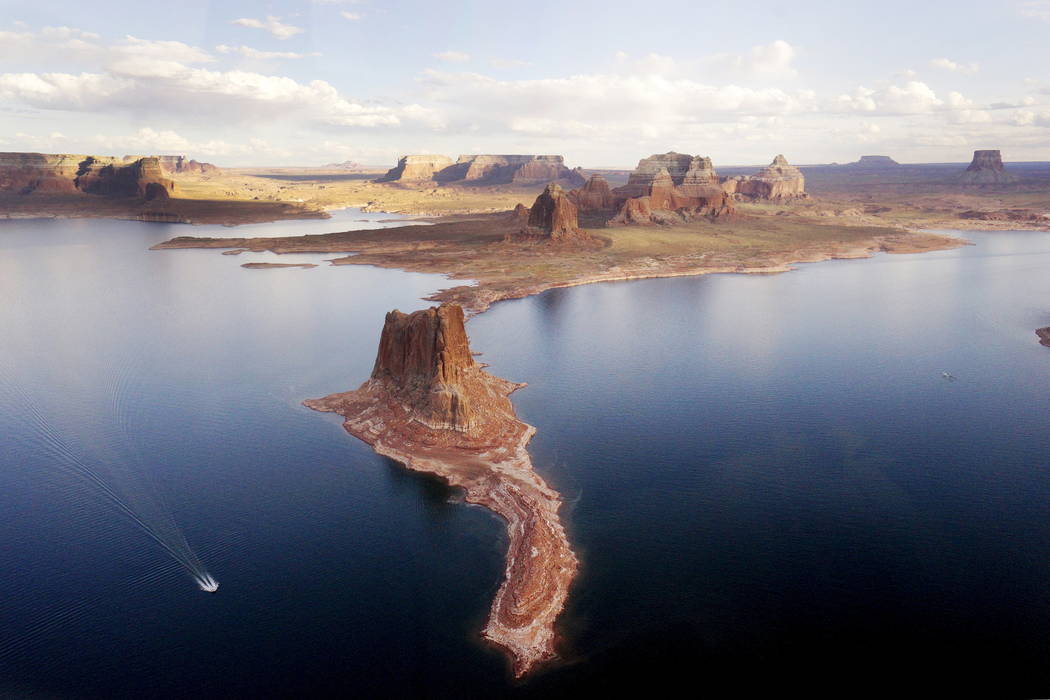COMMENTARY: Congress should pass bill to make it easier to search for missing persons on federal land
In May, U.S. Sens. Mark Warner of Virginia, a Democrat, and Dean Heller of Nevada, a Republican, reintroduced legislation that would allow search-and-rescue teams to enter federal lands to look for missing people within 48 hours of applying for a permit.
The Good Samaritan Search and Recovery Act was initially introduced in Congress in May 2013 by Rep. Joe Heck of Nevada, who is no longer in office. The impetus for the legislation came from two separate instances of men disappearing in Lake Mead National Recreation Area in 2012.
On Jan. 31, 2012, Keith Goldberg was reported as missing after failing to show up to a Super Bowl viewing party with his brother. Along with assistance from local law enforcement, the Goldberg family oversaw 50 separate searches by volunteers, covering more than 200 miles of the Southern Nevada desert.
The few clues that were found pointed the family in the direction of Lake Mead. But the managing park rangers of the Lake Mead National Recreational Area denied the family and search groups access to the area until they had obtained the proper permits and a $1million insurance policy.
Determined, the family spent more than a year raising money and fighting through bureaucratic barriers to get the necessary permits. Keith Goldberg’s remains were found within two hours of gaining access to the national park on April 14, 2013, well more than a year after he was reported as missing. Only partial remains were recovered, but they provided enough evidence to charge Keith’s then girlfriend and her estranged husband for Keith’s murder.
Members of the Goldberg family were understandably devastated to learn that their brother and son had been murdered, and grateful that his killers have been caught, but they are still furious at the yearlong process it took to bring them such sad closure.
In an equally tragic and similar occurrence, Air Force Staff Sgt. Antonio Tucker was reported missing in Lake Mead on June 23, 2012. Local law enforcement attempted a search-and-rescue operation the day Tucker went missing, but after a day of searching with no luck, the operation switched to search and recovery.
Lake Mead is 120 miles long and has approximately 247 square miles of surface area, with parts of the lake that exceed 500 feet in depth. The limited resources available to find and recover Tucker ran out in a matter of weeks.
Private search-and-recovery dive teams faced the familiar permitting and insurance obstacles that the Goldbergs ran into with the National Park Service. On the same day searchers found the remains of Keith Goldberg, a private dive team began searching for Tucker.
His remains were pulled from the lake two days later.
The revived Good Samaritan Search and Recovery Act aims to eliminate the needless delays caused by the current permitting process and the unnecessarily large insurance bond. Under its current iteration, the act calls on the secretaries of the interior and agriculture to work together and develop a new process that would grant applicants searching for a missing person entry into federal lands within 48 hours. The act would also waive the need for applicants to post any amount of bond, so long as they agreed to indemnify the government from all associated liability connected to the search activity.
Time is the greatest enemy in all search-and-rescue efforts. Reducing any delay in these efforts will help enhance rescue outcomes, reduce the need for recoveries and give hope to the helpless families left wondering what happened to their loved one.
Tom Asimou is a Phoenix attorney. Caitlyn Mitchell is a third-year law student at Arizona State’s Sandra Day O’Connor School of Law.






















